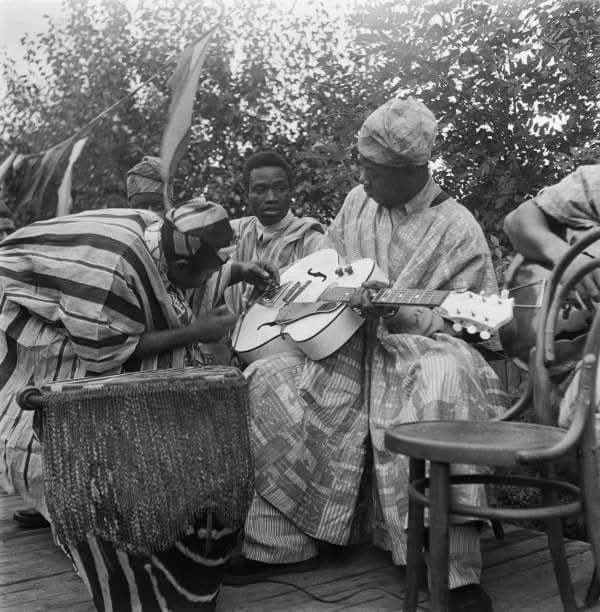Ambrose Campbell: Pioneer of Modern Nigerian Music
Ambrose Campbell: Pioneer of Modern Nigerian Music
Born: 19 August 1919, Lagos, Nigeria
Died: 22 June 2006, Plymouth, UK
Ambrose Campbell, born Oladipupo Adekoya Campbell, is celebrated as a foundational figure in modern Nigerian music. Fela Kuti himself recognized Campbell as the “father of modern Nigerian music.”
Early Life and Musical Beginnings
Campbell grew up in a Christian household where his father served as a preacher. He sang in the church choir but ventured into palm-wine music, a genre combining African rhythms with Portuguese and Caribbean influences. His family disapproved of his musical pursuits, leading to his expulsion from the family home. During this turbulent period, Campbell found refuge with nationalist leader Herbert Macaulay, who offered him protection.
He worked as both a printer and a musician during his early years in Lagos.
Journey to Britain
At the onset of World War II, Campbell joined the crew of an Elder Dempster cargo ship. During his second voyage, the ship was attacked by German U-boats in the Atlantic. Surviving the attack, Campbell jumped ship in Liverpool and later moved to London, becoming part of the city’s small but vibrant Nigerian community.
The West African Rhythm Brothers
In the 1940s, Campbell formed the West African Rhythm Brothers, blending highlife and calypso influences with African rhythms. The band became a cultural bridge, introducing African music to Western audiences.
Notable Milestones:
The band’s first public recognition came during VE Day celebrations in 1945, where they performed at Trafalgar Square and Piccadilly Circus.
Campbell’s music, which fused traditional Nigerian sounds with Western styles, played a significant role in shaping the identity of African music in the diaspora.
Challenges in Britain
Campbell faced racial discrimination in Britain. On one occasion, he was attacked by racist thugs at a London underground station. His close associate Brewster Hughes, who had moved to London, was later imprisoned for shooting one of Campbell’s attackers.
Later Life and Legacy
Campbell returned to Nigeria periodically but spent most of his life in Britain. He lived his final years in Plymouth, UK, with his daughter and grandchildren, passing away in 2006 at the age of 86.
Legacy
Ambrose Campbell’s contributions to music laid the groundwork for modern African music on the global stage. His innovations continue to inspire Nigerian and African musicians, securing his place as a cultural icon.
